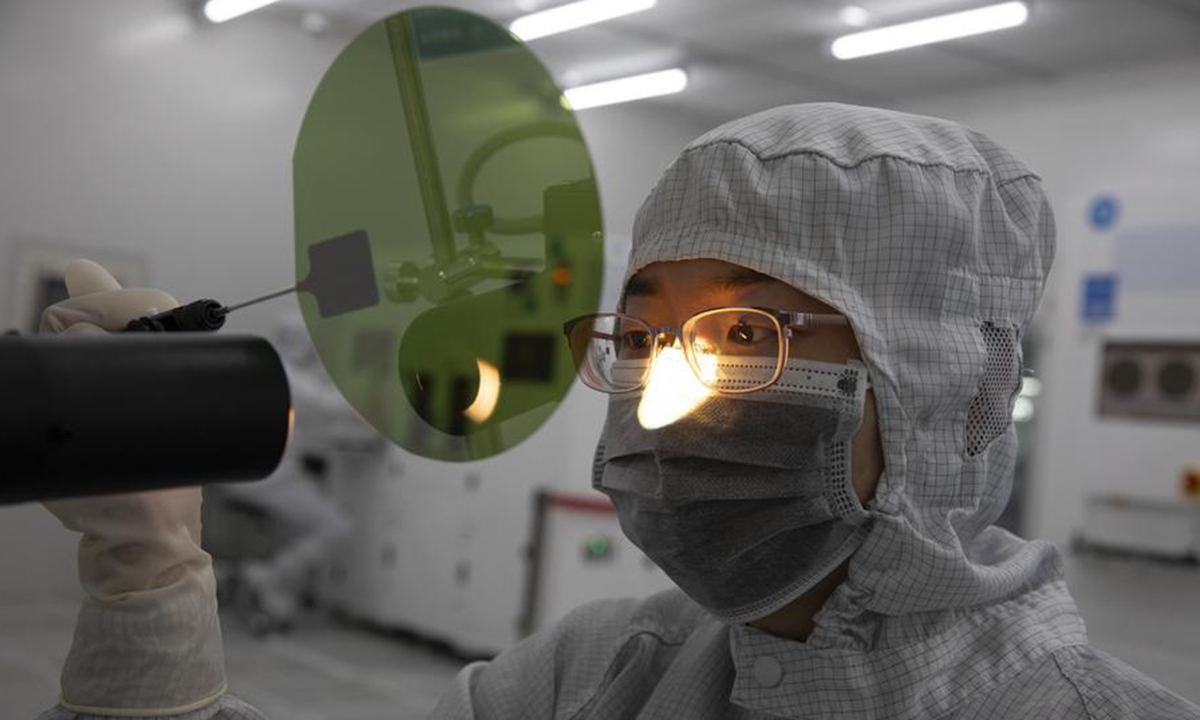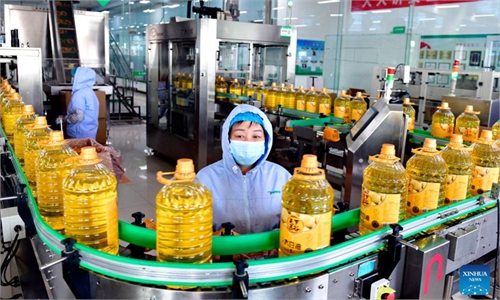US’ reported plan to tighten export controls on chips targeting China to disrupt global supply chain: MOFCOM

A staff member works at the workshop in the headquarters of TankeBlue Semiconductor Co., Ltd. in Daxing District of Beijing, capital of China, Jan. 24, 2024. (Xinhua/Jin Liwang)
The US' reported move to tighten export controls on semiconductors targeting China by taking stricter measures to pressure companies in countries such as Japan and the Netherlands severely deviates from the principles of free trade and multilateral trade rules and severely impacts the stability of global industrial and supply chains, a spokesperson from China's Ministry of Commerce (MOFCOM) said on Friday, in the latest remarks over US export controls targeting China.
The US attempt to push for "decoupling" with China will only drive Chinese companies to enhance their innovation capabilities and seek broader cooperation beyond the US, leaving American companies to bear the consequences of not being part of the vast and booming Chinese market, one Chinese expert said.
The Biden administration, facing pushback to its chip crackdown on China, has told allies that it's considering using the most severe trade restrictions available if companies such as Tokyo Electron Ltd. and ASML Holding NV continue giving the country access to advanced semiconductor technology, a report published by Bloomberg claimed.
Seeking leverage with allies, the US is mulling whether to impose a measure called the foreign direct product rule, or FDPR, the report said, citing people familiar with recent discussions.
The semiconductor industry is highly globalized. After decades of development, it has formed an interconnected industrial pattern as a result of market forces and choices of businesses, the MOFCOM spokesperson said on Friday, responding to recent US reports on the matter.
For some time now, the US has frequently overstretched the concept of national security, abused export control measures, and wantonly interfered in the normal economic and trade exchanges between companies in other countries, the spokesperson said.
"This move severely deviates from the principles of free trade and multilateral trade rules and severely impacts the stability of global industrial and supply chains," the spokesperson said, noting that China has consistently and firmly opposed this.
The rapid development of the semiconductor industry today is the result of global cooperation, not separation, and it is not something the US can achieve alone, Zhou Mi, a senior research fellow from the Chinese Academy of International Trade and Economic Cooperation, told the Global Times on Friday.
The US is abusing its hegemony by attempting to impose stricter controls on a wider range of chip exports, a move that will backfire on foreign companies "being held hostage" by cutting them off from the large Chinese chip market, Zhou noted.
In January, ASML warned that US export controls would affect its sales in China by 10-15 percent in 2024 while announcing better-than-expected results for the fourth quarter and full year of 2023.
The Dutch company has been caught in the broader technology battle between the US and China. Exports of NXT:2050i and NXT:2100i lithography systems in 2023 to China were both affected.
"However, such attempts by the US may ultimately fail and instead push Chinese companies to strengthen their innovation capabilities and open their arms wider for global cooperation, while leaving the US not being able to fully take part in the vast and booming Chinese market," Zhou said.
The MOFCOM spokesperson added that "We hope that relevant countries will adhere to market principles and the spirit of contracts, resist US economic coercion, and work together to maintain the stability of global industrial and supply chains."



